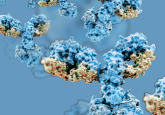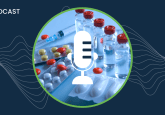The evolution of iChem workflow automation: a podcast with Andrew Hall
About the speaker
 Andrew Hall
Andrew HallQuestions
1. How has large molecule bioanalysis workflow automation evolved over the past decade and why?
In general, large molecule bioanalysis has lagged-behind LC−MS bioanalytical groups regarding the development of automated workflows. However, as the demand for large molecule bioanalysis increases globally, the attention has switched and therefore the first organization to truly develop a fully automated flexible workflow, which also encapsulates automated secure data transfer will be at a significant advantage in becoming the number one provider.
2.What are the present challenges facing large molecule bioanalysis and how has that changed industry outlook on workflow automation?
The increasing complexity and novel modalities such as multi-domain proteins, anti-sense oligonucleotides (ASOs) and gene therapies has resulted in more challenging non-standard assay platforms. As a result, automated workflows need to be flexible and easily adaptable. The changing labor market landscape continues to affect the industry as a whole, therefore the need to robust high performing automated workflows becomes a high priority. The industry as a whole has a responsibility to lower the cost of drug development and minimize our carbon footprint, automated workflows can lead to more effective use of the laboratory footprint and more sustainable practices.
3.What considerations will need to be addressed when advancing the concept of workflow automation for iChem? And why?
A number of challenges and considerations need to be addressed when advancing the concept of automated workflows. The first is the large amount of resource to develop, validate and implement automated workflows, ensuring that all present and potential future data integrity requirements are taken into account. The process can take years and requires high levels of expertise, knowledge and time to deliver, this resource often has to be provided by departments already under pressure. A further significant challenge is that automated workflows need conformity in certain aspects of the clinical trials such as sample type and numbers, they need to be pre-planned so that the workflow can be fully utilized and as a result there is a higher requirement for proactive setup at the start of the project.
4.Given current trends, what will the future of iChem workflow automation look like? And why?
IChem automation requires significant advancements to meet future challenges. The future success will be as a result of the development and expansion of fully integrated, scalable and user-friendly automated platforms. A modular approach based upon understood platforms can drive automation flexibility and efficiencies despite increased variety of bespoke iChem assays. These improvements will allow departments to overcome staffing challenges, increase lab capacity and efficiency, and reduce study turnaround times.
In association with:







